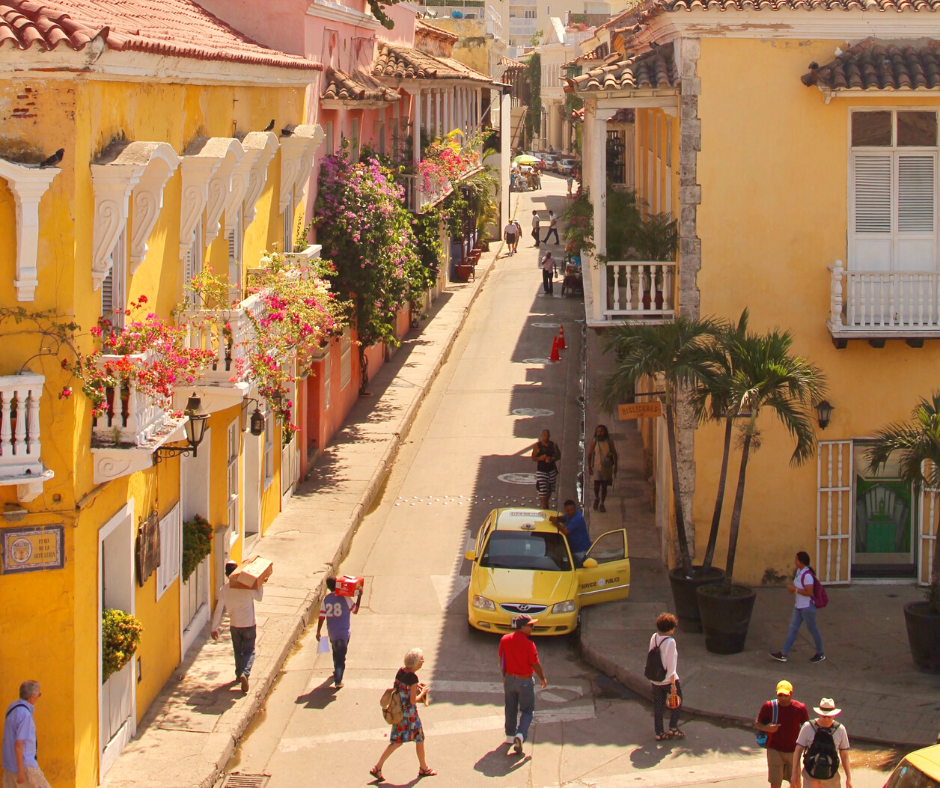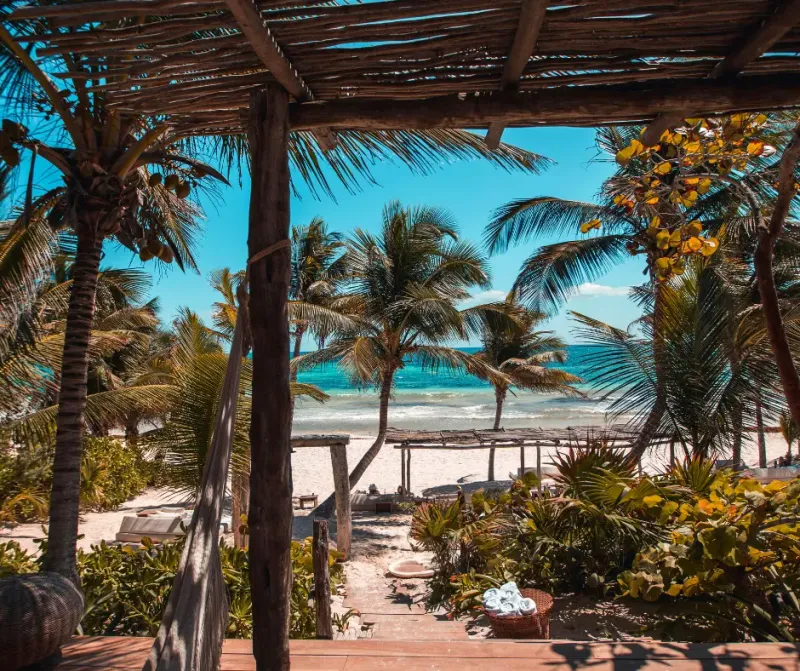The west coast of the USA is a piece of land with vibrant cities, stunning natural landscapes, and a culture that's as diverse as it is dynamic. From the bustling streets of San Francisco to the sunny beaches of San Diego, this region of the country is a must-visit for any traveler.
The west coast is also home to some of the world's leading tech companies, including Microsoft, Amazon, Apple, Google, and Facebook. Surely, this creates a dynamic and innovative environment that can be very attractive to work and live in.
🌱 Travel health insurance for the USA
💡
Genki Traveler is a travel health insurance with worldwide cover. Monthly payment plans, and easy signup in less than 1 minute.
The table of content will be generated here
🇺🇸 Entry requirements for the USA
- Valid visa: Passport holders from certain countries may be eligible to travel to the United States for up to 90 days without a visa under the Visa Waiver Program (VWP). This program applies to citizens of many European countries, as well as Australia, New Zealand, Japan, South Korea, Taiwan, and several other countries. However, travelers must apply for authorization through the Electronic System for Travel Authorization (ESTA) before entering the U.S.
✈️ How to get to the USA
- Plane: The most common and convenient way to get to the West Coast is by air. Most major airlines operate flights to cities such as San Francisco, Los Angeles, Seattle, and Portland.
- Boat: Some popular cruise lines that operate on the West Coast of the USA include Princess Cruises, Holland America Line, and Norwegian Cruise Line. These operators offer a variety of itineraries and amenities and can be a great alternative depending on your budget and itinerary.
🏡 How to find a place
- Facebook Groups: Many cities have Facebook groups for short-term rentals and sublets. These groups can be a great way to find affordable and flexible apartments that are not listed on traditional rental websites. Check out groups like Seattle - housing & roommates, Los Angeles LA - Housing, Rentals, Apartments, Rooms, Sublets or San Diego Housing, Rooms, Apartments, Sublets
- Airbnb: If you have no time to search for a good price-value accommodation, and you are okay with spending more money, you can find an extensive list on Airbnb for all pockets.
- Furnished Finder: The website specifically is designed for short-term rentals for traveling healthcare professionals, but it can also be used by digital nomads. The website offers fully furnished apartments, condos, and houses for rent, often with flexible lease terms.
🌅 Seattle
- Arrival: Popular airport in Seattle is Seattle-Tacoma International Airport (SEA). The airport is well-connected with European and Asian hubs and is a great entry point to the United States. From the airport, the most convenient and cost-saving option for transfer is by light rail which takes approximately 40 minutes and costs 3,50 Euros.
- Neighborhoods: Capitol Hill, Fremont, and Ballard, with average weekly prices for housing ranging between 400-600 Euros.
- Public transport: Seattle has an extensive public transportation system including buses, streetcars, and ferries, with prices ranging from 2,00-3,50 Euros per ride. If you plan to use public transportation on a regular base, check out if the ORCA card suits your needs.
- Coworking spaces: The Cloud Room (40 Euro per day), The Pioneer Collective (from 115 Euros per 8 days)
- Coffee Shops: URL Coffee, Storyville Coffee, Espresso Vivace
- Must-See: The Space Needle, Pike Place Market, Chihuly Garden and Glass, the Museum of Pop Culture.
Next Stop San Francisco
- Plane: The quickest way to get from Seattle to San Francisco is by flying. There are several airlines that offer direct flights between the two cities, including Alaska Airlines, Delta, and United Airlines. The flight time is approximately 2.5 hours.
- Train: Another option is taking an Amtrak train from Seattle to San Francisco. The Coast Starlight train runs daily and offers spectacular views of the Pacific Coastline and the Cascade Mountains. The journey takes around 23 hours and offers overnight accommodations, dining car service, and various seating options.
- Bus: If you're on a budget, taking a bus from Seattle to San Francisco is the cheapest option. Greyhound and FlixBus offer several trips per day and the journey takes around 20 hours. However, be prepared for a long trip and have fewer amenities compared to other modes of transportation.
- Private Car: If you prefer driving, the route takes 13-14 hours without stopping.
🌉 San Francisco
- Arrival: San Francisco has two major airports, San Francisco International Airport (SFO) and Oakland International Airport (OAK), both offering international and domestic flights. SFO is the larger of the two and is well-connected to the city center with various public transportation options, including the BART train system and bus routes. The BART train takes approximately 30 minutes and costs around 10 Euros.
- Neighborhoods: Mission District, Hayes Valley, and Haight-Ashbury. Average weekly prices for housing can vary greatly depending on the neighborhood, ranging from 600-1000 Euros.
- Public transport: San Francisco has a comprehensive public transportation system, including buses, light rail, cable cars, and the iconic BART train system. Prices range from 2-3 Euros per ride, with options for daily, weekly, and monthly passes. The MuniMobile app allows for easy payment and planning of routes.
- Coworking spaces: workshop cafe (25 Euros per day), Mindspace (38 Euros per day).
- Coffee Shops: Blue Bottle Coffee, Sightglass Coffee, and Four Barrel Coffee.
- Must-See: Golden Gate Bridge, Alcatraz Island, the Painted Ladies, Fisherman's Wharf, and the de Young Museum.
Next Stop Los Angeles
- Plane: The quickest way to get from San Francisco to Los Angeles is by flying. The flight time is approximately 1.5-2 hours.
- Train: Another option is taking an Amtrak train from San Francisco to Los Angeles. The journey takes around 12 hours and offers overnight accommodations and dining car service.
- Bus: Greyhound and FlixBus offer several trips per day, and the journey takes around 8-10 hours.
- Private car: If you prefer driving, the route takes around 6-7 hours without stopping, but traffic can be heavy and delays are common, especially in the Los Angeles area.
🌃 Los Angeles
- Arrival: Los Angeles is served by several airports, including Los Angeles International Airport (LAX), Burbank Bob Hope Airport (BUR), and Long Beach Airport (LGB). LAX is the largest and busiest airport in the area, with direct flights from around the world.
Various transportation options are available from the airport, with LAX FlyAway Bus as the cheapest option for 9 Euros. The taxi is probably 50 Euro. Ride-hailing apps like Uber or Lyft are available and the ride would cost around 25 Euro. - Neighborhoods: Downtown LA, Santa Monica, Beverly Hills, and Hollywood. Average weekly prices for housing can vary greatly depending on the neighborhood, ranging from 700-1200 Euro.
- Public transport: Los Angeles has an extensive public transportation system, including buses, light rail, and subway trains. The Metro system operates throughout the city, with fares ranging from 1-2 Euro per ride. The TAP card can be used for easy payment and reloading.
- Coworking spaces: Village Workspaces (daily price requested).
- Coffee Shops: Verve Coffee Roasters, Blue Bottle Coffee.
- Must-See: Hollywood Walk of Fame, Griffith Observatory, Santa Monica Pier, Universal Studios Hollywood, and the Getty Center.
Next Stop San Diego
- Plane: Fastest option to get from Los Angeles to San Diego is by flying. Several airlines offer direct flights between the two cities, and the flight time is approximately 1 hour.
- Train: Another option is taking an Amtrak train from Los Angeles to San Diego. The journey takes around 3 hours and offers scenic views of the California coastline.
- Bus: Greyhound and FlixBus offer several trips per day, and the journey takes around 2-3 hours.
- Private Car: If you prefer driving, the route takes around 2-3 hours without stopping, depending on traffic conditions.
🏙️ San Diego
- Arrival: The city's major airport, San Diego International Airport (SAN), is located just 3 miles northwest of downtown San Diego and is easily accessible by various public transportation options, including buses, taxis, and ride-sharing services like Uber and Lyft. The average cost for a taxi or ride-share service from the airport to downtown is around 20 Euros and takes approximately 15 minutes.
- Neighborhoods: La Jolla, Gaslamp Quarter, and North Park. Average weekly prices for housing can vary greatly depending on the neighborhood, ranging from 700-1,000 Euros.
- Public transport: The public transportation system includes buses, trolleys, and trains, operated by the San Diego Metropolitan Transit System (MTS). The fares vary depending on the distance and mode of transportation, ranging from 2-5 Euro per ride. The Compass Cloud app allows for easy payment and planning of routes.
- Coworking spaces: Downtown Works (55 Euro per day), Gather Cowork (35 Euro per day)
- Coffee Shops: Dark Horse Coffee Roasters, James Coffee Co., and Heartwork Coffee Bar.
- Must-See: Balboa Park, San Diego Zoo, USS Midway Museum, Coronado Beach, and Old Town San Diego State Historic Park.
🚊 How to travel around
- Bus: There are several bus companies that operate intercity services on the West Coast, including Greyhound and FlixBus. These companies offer frequent departures and a variety of routes between cities, making it easy to travel from one city to another. Fares vary depending on the route and the time of travel, but can be relatively affordable.
- Train: Amtrak operates several long-distance train routes that run along the West Coast, including the Coast Starlight, which travels from Seattle to Los Angeles with stops in several cities along the way. Amtrak also operates regional train services, such as the Amtrak Cascades service between Eugene, Oregon, and Vancouver, British Columbia. Trains are generally more expensive than buses but can offer a more comfortable and scenic travel experience.
- Private car: Renting a car is a popular and convenient way to travel around the West Coast. There are many rental car companies located in major cities and airports, and the region's extensive highway network makes it easy to get around. However, traffic can be heavy in some areas, so it's important to plan accordingly.
- Domestic flights: For longer distances, domestic flights are a convenient option. The West Coast is home to many major airports, and there are frequent flights between cities. However, flights can be expensive, so it's important to shop around for the best deals.
💡Good to know
- Internet: The United States of America is known for having some of the fastest and most reliable internet in the world. The average download speed for fixed broadband is 197.84 Mbps, with upload speeds averaging around 23.02 Mbps.
- Sim cards: There are several major telecommunications companies that offer prepaid sim card plans, including AT&T, Verizon, and T-Mobile. A typical plan may offer 1-2GB of data and unlimited calls and texts for around 30-50 USD per month.
- Currency: The currency of the USA is the US dollar (USD).1 Euro is equivalent to approximately 1,15 USD, while 1 USD is equivalent to 0,87 Euro.
Socket types: Type A and Type B sockets, which are also used in Canada, Mexico, and several other countries in the Americas. - Digital nomad community Cities like San Francisco, Seattle, and Los Angeles have numerous co-working spaces, networking events, and other resources for digital nomads. Additionally, many tech companies and startups are based on the West Coast, providing opportunities for collaboration and networking.
- Climate: The climate varies depending on the location, but is generally mild and Mediterranean-like, with warm, dry summers and cool, rainy winters. Temperatures in summer can range between 16-30 degrees.
- Culture: Generally the USA is a melting pot of cultures and influences, with a rich and diverse arts scene, music, literature, and cuisine. It is home to many famous landmarks and attractions, such as the Golden Gate Bridge in San Francisco, Hollywood in Los Angeles, and Pike Place Market in Seattle.
- Cost of living: The cost of living on the USA's west coast varies depending on the location and individual lifestyle, but is generally higher than in other parts of the USA. Monthly expenses for a digital nomad could range from 2,500 Euro to 4,000 Euro, depending on factors such as housing, transportation, food, and entertainment.
🚧 What to avoid
- Leaving valuables in your car: Car break-ins and thefts are common in some areas, so it's best to avoid leaving valuables in your car or unattended.
- Ignoring beach safety warnings: The West Coast is known for its beautiful beaches, but there can be dangerous rip currents and strong waves. Always pay attention to beach safety warnings and avoid swimming alone.
- Not carrying cash: While credit cards are widely accepted, some smaller businesses may only accept cash, so it's a good idea to have some on hand.
- Not researching parking options: Parking can be difficult and expensive in some areas, so it's best to research parking options ahead of time.
- Not following traffic laws: Traffic can be heavy in some areas, so it's important to follow traffic laws and be aware of local driving customs.
🚴🏻♀️ How to stay healthy
Stay active
- Hiking: The region is known for its stunning national parks and hiking trails, including Yosemite National Park, the Pacific Crest Trail, and many more. Check out the top 10 Day Hikes on the USA West
- Beach activities: Enjoy swimming, surfing, or sunbathing at one of the many beautiful beaches along the coastline. Make sure you have a strong sun blocker for protecting your skin appropriately.
- Biking: Explore scenic bike paths and routes, such as the Golden Gate Bridge in San Francisco or the Santa Monica Beach bike path in Los Angeles.
- Camping: Pitch a tent and camp in one of the many scenic locations throughout the region, such as Joshua Tree National Park or Olympic National Park. Driving to Joshua Tree National Park from Los Angeles or San Diego is approximately 3 hours and is offered by Greyhound or Flixbus. A 7-day pass costs 15 USD per person for those entering the park on foot, bike, or horseback.
- Rock climbing: Challenge yourself by climbing the many cliffs and rock formations found throughout the region, such as Yosemite's El Capitan. You can find groups and guided tours easily on Facebook.
- Stand-up paddleboarding: Try this popular water sport at one of the many beaches or lakes in the region.
- Golfing: Play a round of golf at one of the many beautiful courses in the area, such as Pebble Beach or Bandon Dunes.
Health Risks
- Water Quality: Yes, generally you can drink tap water in the United States of America.
- Air Quality: The air quality on the USA's west coast is good.
🇺🇸
Experiences to share or questions to ask about the USA?
✈️
Where to travel next?
USA east coast for nomads
The east coast of the United States of America is full of history, culture, and bustling metropoles. From the vibrant cities of New York and Miami to the charming towns of Asheville and Charleston, this region is a must-visit for any traveling digital nomad. The east coast is also home
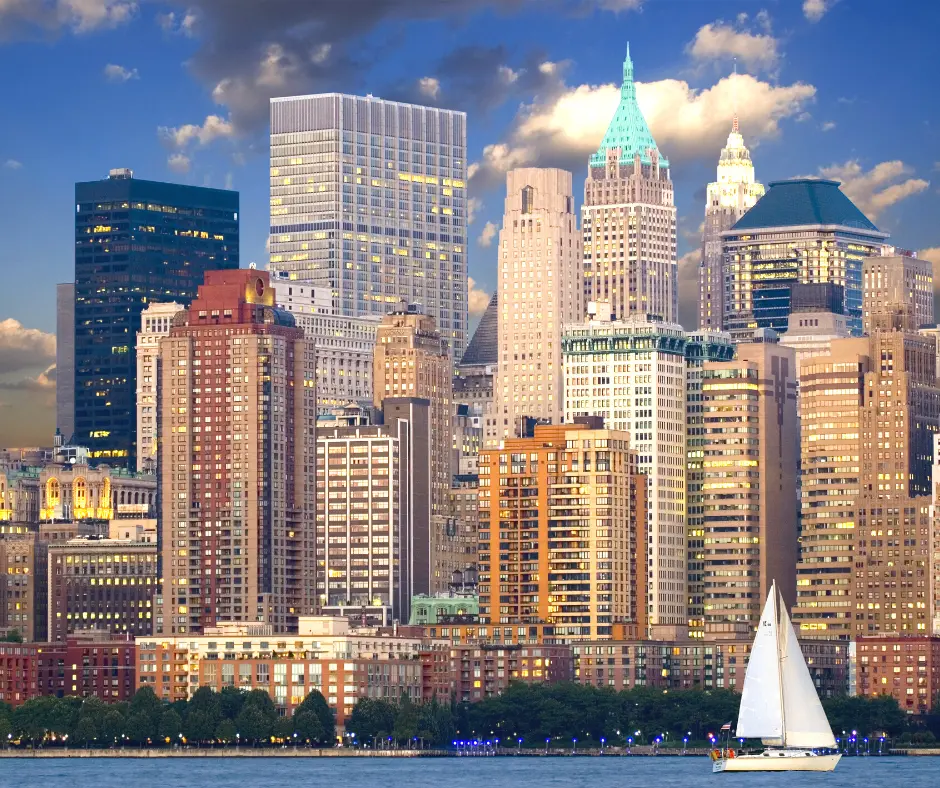
Kift: A digital nomad & van life community in nature
Imagine traveling in a converted RV camper, choosing your own route, and your own pace, and having access to well-equipped community kitchens, coworking spaces, and workout decks. Joining Kift means living either in your own or a rented vehicle while having access to Kift’s community houses. 🌎 Loc…
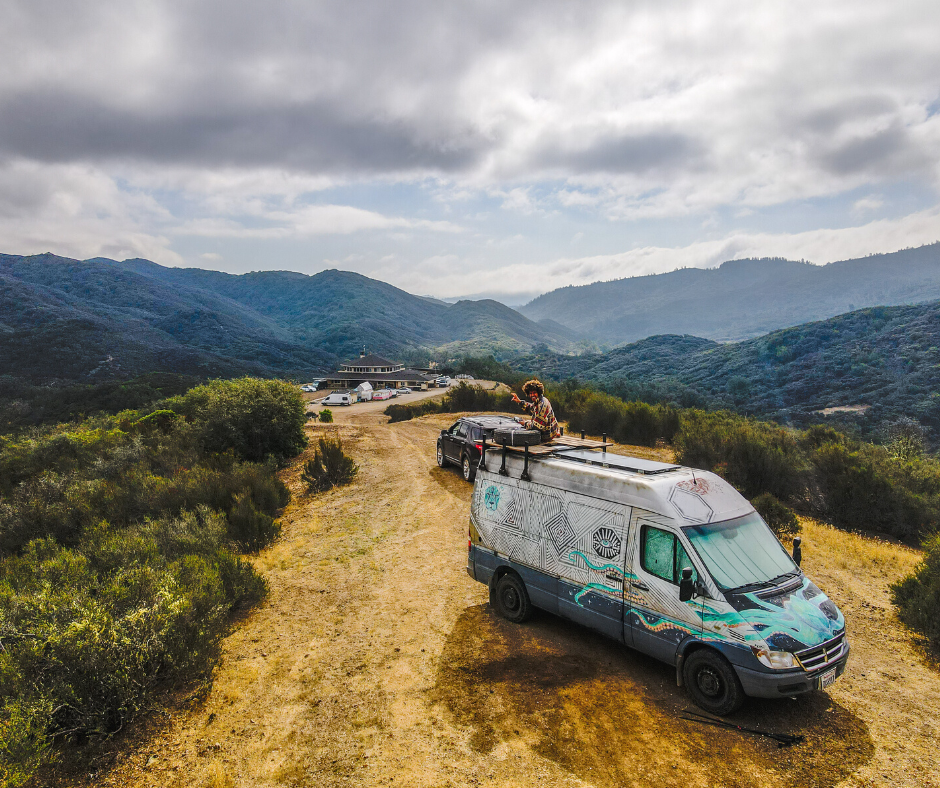
Puerto Rico for nomads
Puerto Rico is a Caribbean island that is an unincorporated territory of the United States. It has a rich history and culture, with influences from Spanish, African, and Taíno cultures. This is also the reason for the country’s vibrant arts scene, music styles such as salsa and reggaeton, and divers…
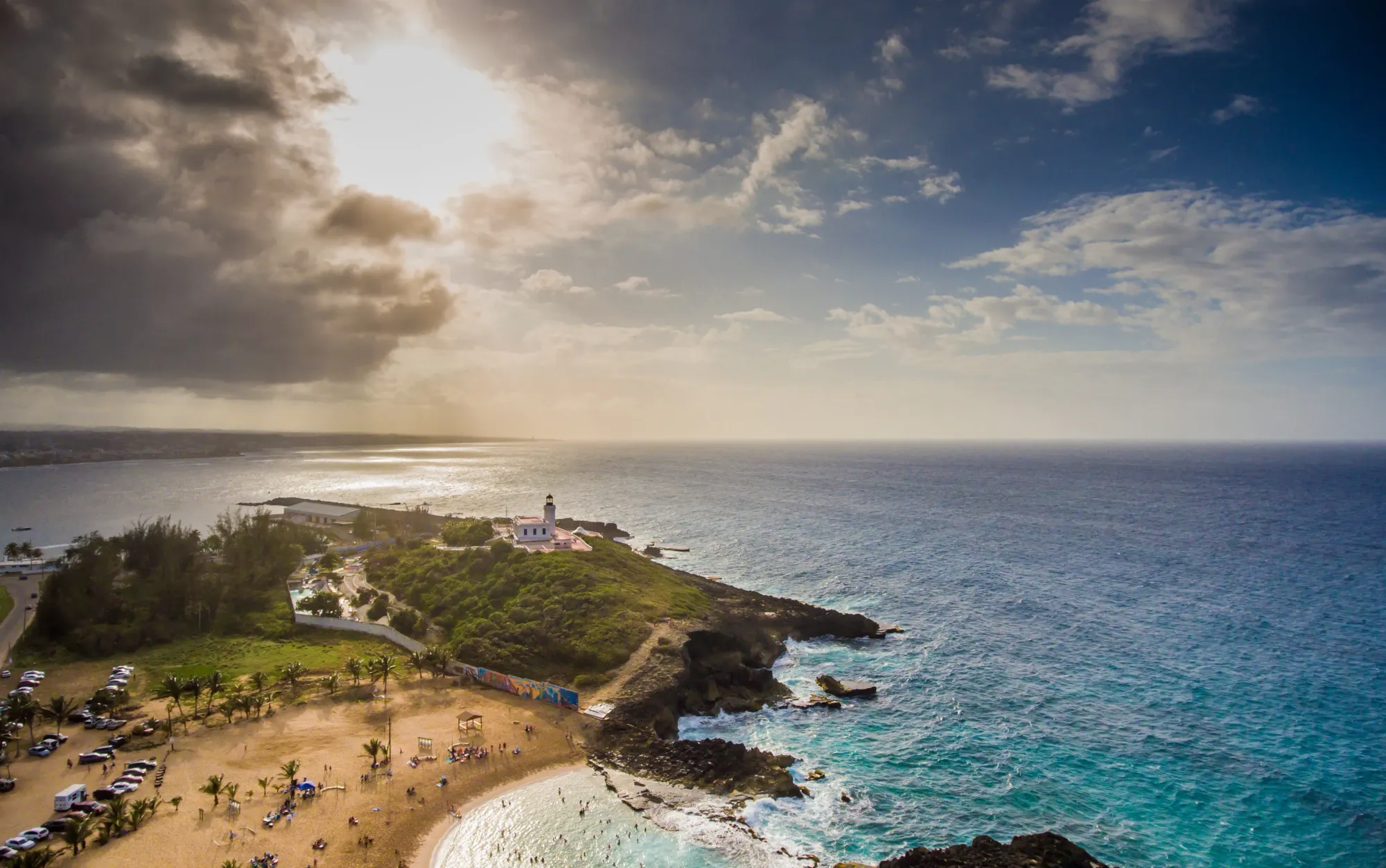
Mexico for nomads
Last updated 2022, November 30th: I am sure you are aware of the fact that Mexico has been open to travelers the entire time of the pandemic. No surprise that Mexico became pretty popular among holidaymakers, escapists, and digital nomads. We collected information to make your journey smooth and eas…





